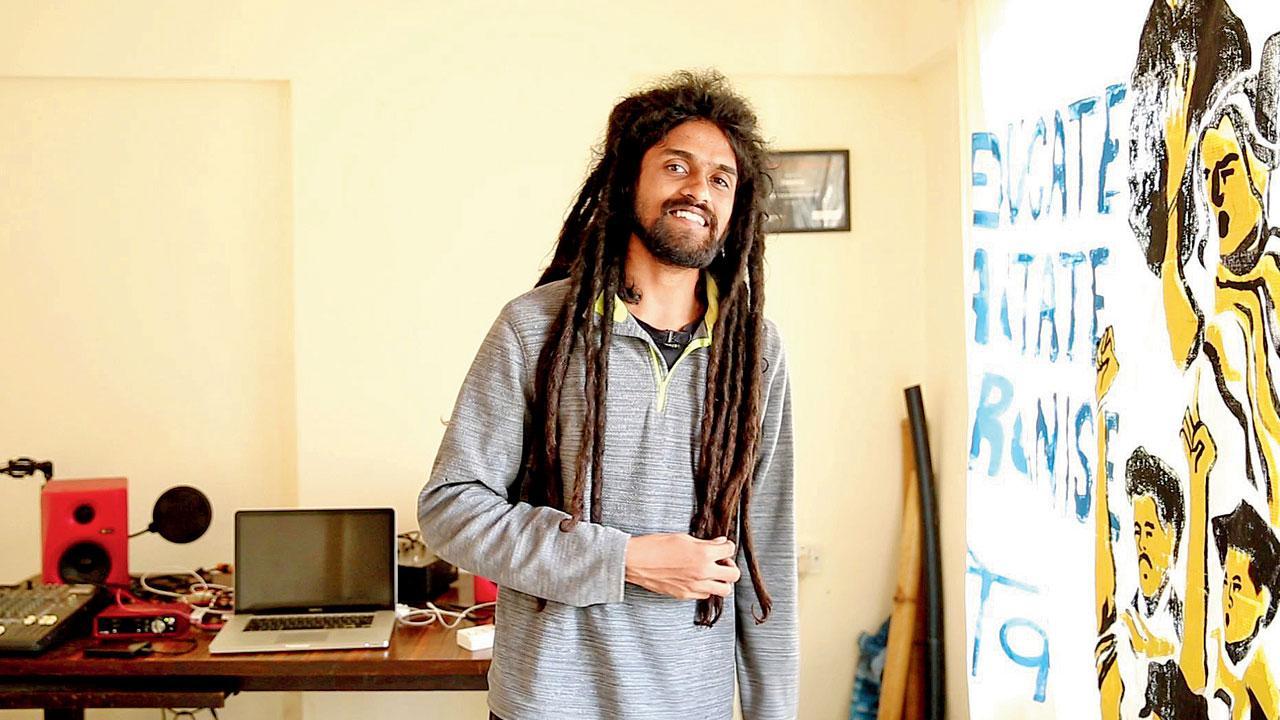Marathi rappers have carved their own niche in Indian hip-hop. We deep-dive into the evolution of this sub-genre in rap music

Aklesh Sutar aka MC Mawali is a member of Swadesi, one of the foremost Marathi hip-hop crews in India
Last month, members of Swadesi, a multilingual hip-hop crew from the city, had organised a trek for Mumbaikars to the Sandhan Valley deep in the heart of the Sahyadris. A host of adventure sports were part of the itinerary, apart from a live gig that Aklesh Sutar aka MC Mawali performed at night. This show included Marathi rap tracks that have shot him to fame within the Indian hip-hop circuit. It’s a musical genre that none of the local residents who attended the gig that evening, had been exposed to.
ADVERTISEMENT
MC Dodo
Yet, when it ended, they went up to Sutar and told him that they had understood and imbibed every word of the lyrics, and had thoroughly enjoyed his performance. They even asked him for YouTube links for more Marathi rap material, telling him that they would share the same with the friends and neighbours who hadn’t been there that night. Remember, this is Sandhan Valley we are talking about, a place that’s nestled in the Western Ghats. But that didn’t stop Marathi rap from spreading its influence further in a state where the people take immense pride in their literature and language.
This sub-genre of Indian hip-hop first started emerging around 2010. That’s when some youngsters who had been part of B-boying crews started exploring other elements of hip-hop culture, including rapping. Sutar was one of them, starting out in 2012. The Mumbaikar tells us, “No one told me to rap in Marathi. I just felt that since I am good with the language, I’ll go with it. There was no Marathi pride involved in my decision. It was simply because it’s the language that my people understand.”
Gradually, others started following suit. Pradip Kashikar, an architecture student, had already set the ball rolling after spitting Marathi bars at a reality show on television. Dopeadelicz, a crew from the slums of Dharavi, released a single called Aai shapath in 2013 that became a sleeper hit. This gave other youngsters in the state the confidence to ditch Hindi or English as their preferred medium for rapping. Ashutosh Rokde aka MC Dodo is someone who started a hip-hop group called Street Force Crew in Pune around 2015. They, too, had concentrated only on B-boying in the beginning. Rokde says, “I liked what I saw when I came across people like Pradip and MC Mawali. There are a lot of rappers who say whatever they feel like, but these guys were really sharing their knowledge, and I felt that I could do it as well.”
But he also adds that in the beginning, most Marathi rappers were more interested in beef scenes — meaning dissing each other at rap cyphers with the choicest of abuses. They lacked nuance. Rokde thus chose to remain underground, improving his knowledge and education so that he could add a level of sophistication to his poetry. He says, “I feel that the truth shall prevail. The abusive ones will fizzle out. But those rappers who are actually trying to say something — who have a social message — will stand the test of time.”
That’s a valid statement, given the fact that today, Swadesi remains the preeminent name in Marathi hip-hop at a time when rappers are popping out of places like Amravati, Nashik and Pune, apart from Mumbai, like mushrooms in the monsoon. The group’s very first song, Laaj watte kai, was an anti-rape anthem and they have followed that up with tracks such as The Warli revolt — a war cry against the felling of trees at Aarey Colony — and anti-establishment albums such as Chetavni. “When I wrote Laaj watte kai, I’d been listening to a lot of foreign rappers who spoke about serious issues, and I felt that I must do the same because a song remains forever.
There is of course an audience for rap tracks with abusive lyrics. Kids find them entertaining. But Marathi culture has a lot of influential literature. We’ve had poets and philosophers, but in today’s day and age, that’s kind of dead. Rap verses can thus be a continuation of their work in the modern day; it can be a new way of learning for the younger generation. That’s why older listeners can also connect to it, and there are many people even in rural Maharashtra who enjoy the music,” Sutar tells us about something we can well believe, given the reception his performance got from the villagers at Sandhan Valley.
 Subscribe today by clicking the link and stay updated with the latest news!" Click here!
Subscribe today by clicking the link and stay updated with the latest news!" Click here!






